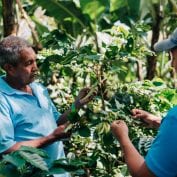
Enhancing Economic Well-Being for Coffee Farmers
The PROLEMPA project will improve the incomes of 2,200 Honduran coffee producers by promoting key agricultural techniques that boost yields and quality, and by linking farmers to new formal buyers

The PROLEMPA project will improve the incomes of 2,200 Honduran coffee producers by promoting key agricultural techniques that boost yields and quality, and by linking farmers to new formal buyers
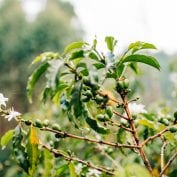
The REgrow Yirga project funded by USDA, JDE, and Peet's Coffee, in partnership with Kew, aims to enhance the sustainable competitiveness of the Ethiopian coffee sector through increased productivity, improved supply chain performance, strengthened market linkages, and a more facilitative enabling environment.
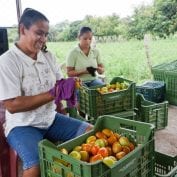
TechnoServe is working to increase revenues for 5,000 fresh produce smallholder farmers in Guatemala and Nicaragua by integrating the farmers into a more inclusive and profitable market system.
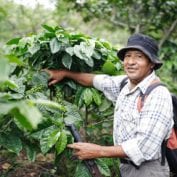
The Maximizing Opportunities in Coffee and Cacao in the Americas (MOCCA) project was a seven-year initiative funded by the U.S. Department of Agriculture (USDA) through the Food for Progress program. Implemented by TechnoServe and partners, MOCCA worked to support over 120,000 farmers across Guatemala, El Salvador, Honduras, Nicaragua, Ecuador, and Peru to overcome barriers to effectively rehabilitating and renovating their coffee and cacao trees.
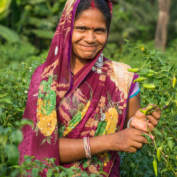
TechnoServe has partnered with Walmart Foundation to launch a two-year Sustainable Livelihoods Program for smallholder farmers to transform 25 to 30 farmer producer organizations in Andhra Pradesh and Uttar Pradesh.
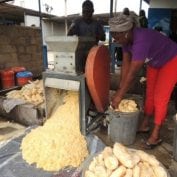
TechnoServe, with funding from the Department of International Development (DFID), is working to address the challenges facing the agricultural sector in Nigeria through the use of technology.
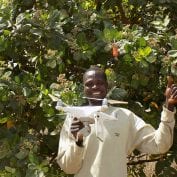
In partnership with Wehubit, TechnoServe is implementing the CajùLab project to promote farmer adoption of climate-smart agricultural (CSA) practices using emerging digital solutions, such as drones and machine learning.
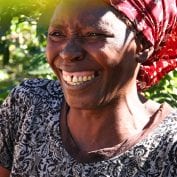
Zimbabwe has a long history of coffee production and was known for producing some of Africa’s best coffee. Production peaked in the late 1980s, but dropped significantly in the early 2000s because of economic hardship and climate shocks.

With support from USAID and in partnership with the Uganda Cooperative Alliance, the TechnoServe led Producer Organization Activity promotes the development of key agricultural commodities in Uganda, including coffee, beans, horticultural produce, and maize.

The Coffee Farm College Program is a four-year training program that aims to improve incomes for 30,000 coffee farming households in Central and Western Uganda by increasing their coffee farm productivity.